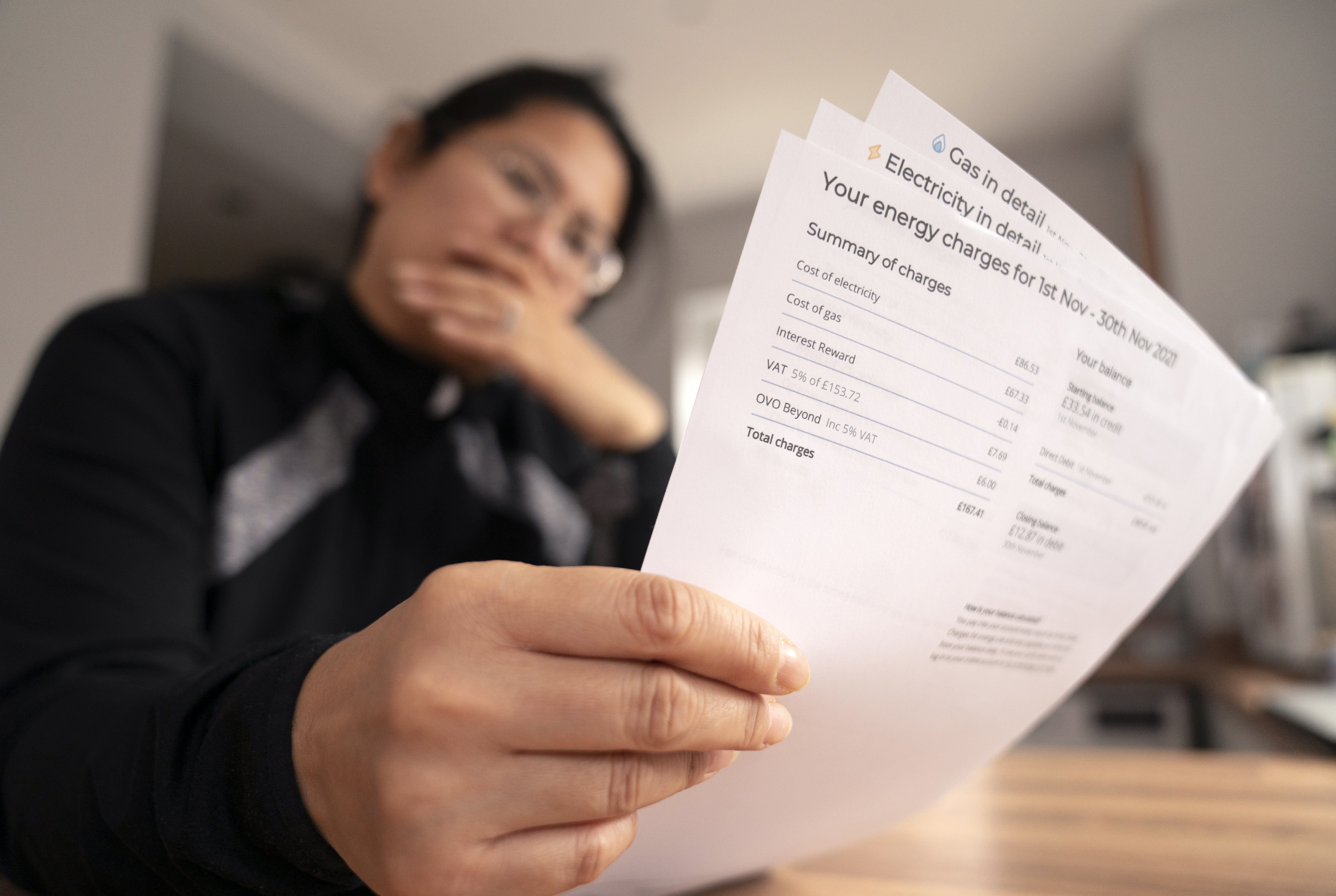Third of people living in fear of energy bills they can’t afford
Some MPs have called for a fuel VAT cut to help protect the public against the energy crisis

Your support helps us to tell the story
From reproductive rights to climate change to Big Tech, The Independent is on the ground when the story is developing. Whether it's investigating the financials of Elon Musk's pro-Trump PAC or producing our latest documentary, 'The A Word', which shines a light on the American women fighting for reproductive rights, we know how important it is to parse out the facts from the messaging.
At such a critical moment in US history, we need reporters on the ground. Your donation allows us to keep sending journalists to speak to both sides of the story.
The Independent is trusted by Americans across the entire political spectrum. And unlike many other quality news outlets, we choose not to lock Americans out of our reporting and analysis with paywalls. We believe quality journalism should be available to everyone, paid for by those who can afford it.
Your support makes all the difference.A third of UK adults expect their energy bills to increase and become unaffordable this year, a survey has revealed, putting pressure on the prime minister to protect the public from the energy crisis.
Mr Johnson, alongside chancellor Rishi Sunak and business secretary Kwasi Kwarteng, will be reviewing ways to reduce the impact of rising energy costs, which could see bills increase by 50 per cent to almost £2,000 from April.
A YouGov survey of 1,774 adults conducted on 6th and 7th January showed that 86 per cent expected their gas and electricity bills to increase in the year ahead. This rose to more than 90 per cent among Conservative voters.
Some 67 per cent of voters said they were worried about rising prices, while 59 per cent supported using tax revenue to limit the rise in gas and electricity bills which is expected when the energy price cap is reviewed in April.
This rose to 66 per cent among Conservative voters, who were more in favour of taxpayer subsidies in comparison to Labour voters, and with particular support among the over-65s.
The most revealing finding from the survey was that 33 per cent expected their energy bills to increase by more than they could afford in the next year.
While the Labour party and some Tory MPs have called for a fuel VAT cut, the prime minister has called such a move a “blunt instrument”.
Speaking during a Downing Street press conference on 4th January, Mr Johnson said: “The argument is that it’s a bit of a blunt instrument and the difficulty is you end up cutting fuel bills for a lot of people who perhaps don’t need the support in quite the direct way that we need to give it. We need to help people who are in fuel poverty the most.”
Speaking about Labour’s plans, Nadhim Zahawi, the education secretary and a former oil industry executive, said: “What Labour are putting out just doesn’t add up. A windfall tax on oil and gas companies that are already struggling in the North Sea is never going to cut it.”
The survey also revealed that 43 per cent wanted the tax rise cancelled while 37 per cent said that it should go ahead to fund health and social care spending. Mr Johnson plans to go ahead with a 1.25 point rise in National Insurance in April to fund the NHS and social care.
Another option for tackling the rising costs would involve energy companies scrapping green levies, but this is considered to be unlikely, despite support from some backbenchers.
Analysis by the Taxpayers’ Alliance estimates that green taxes will increase by more than 40 per cent under the current government. Its analysis of Office For Budget Responsibility figures highlighted that £11.7 billion raised by measures such as the climate change levy and carbon price floor would increase to £16.7 billion by May 2024, when an election is due.
This comes after the Tories took a hit late last year due to the Christmas party allegations and Labour saw an eight-point lead at Christmas.
Join our commenting forum
Join thought-provoking conversations, follow other Independent readers and see their replies
Comments